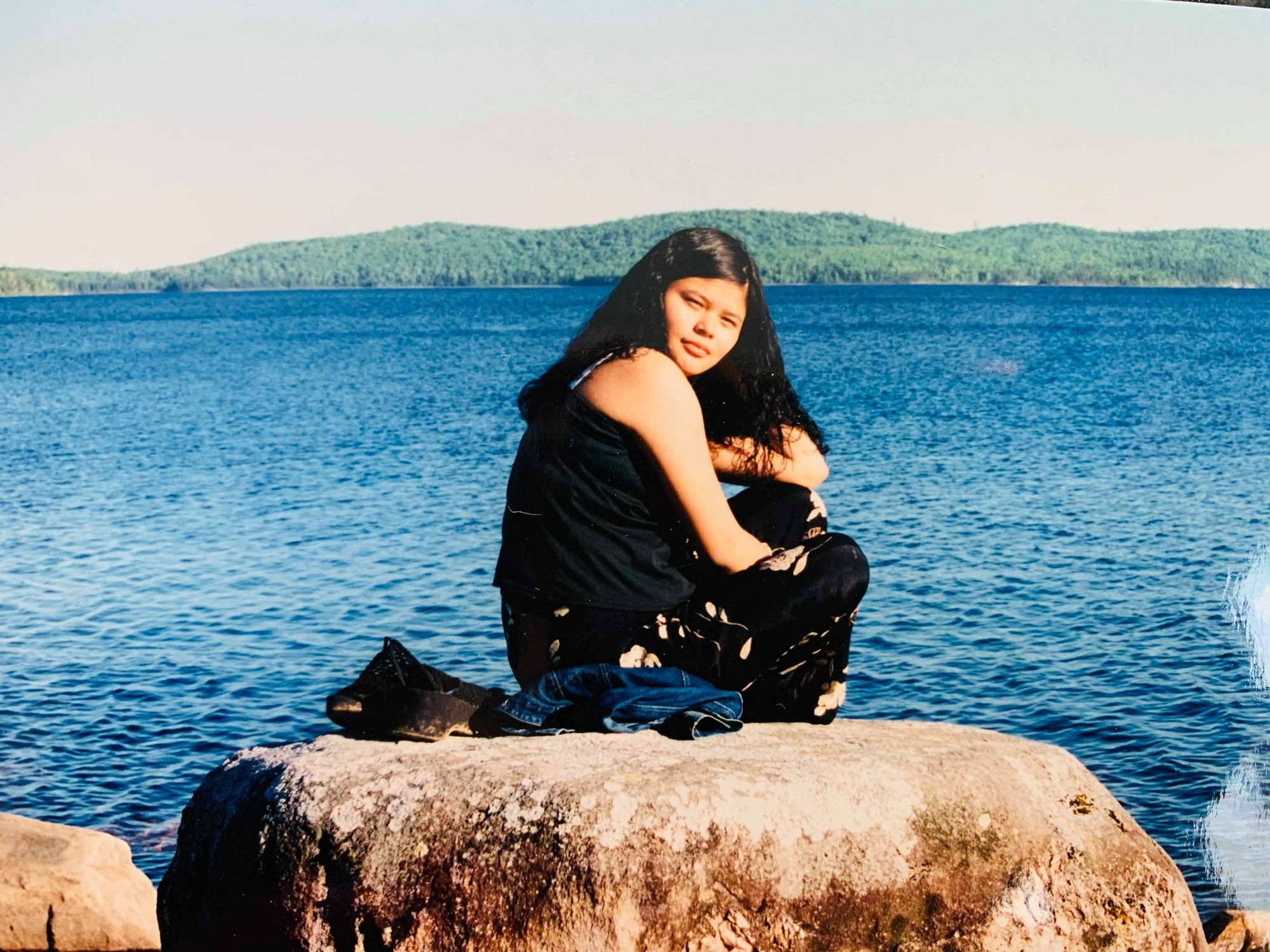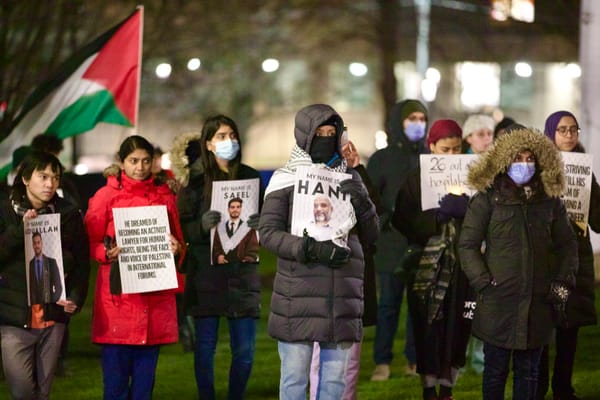Earlier this month, Quebec coroner Géhane Kamel released a report summing up the findings from her inquiry into Joyce Echaquan’s death in September 2020.
Echaquan, a 37-year-old Atikamekw Nation mother, live streamed nurses taunting and harassing her in a hospital shortly before she died. Kamel found that Echaquan’s death — from pulmonary edema — could have been avoided if she was treated properly. Instead, anti-Indigenous stereotypes led to the nurses falsely assuming that she was suffering from withdrawal.
At an October 5 news conference, Kamel was asked if Echaquan would still be alive if she was white. She replied, “I think so.” Kamel also noted that the problem wasn’t just with a couple bad nurses, but rather with Quebec’s health care system as a whole, which she said is “imprinted with prejudice and biases that contributed to (staff) not taking the situation seriously.”
The issue is not limited to Quebec, either. Earlier this year, for example, a British Columbia report concluded that the province’s healthcare system was systemically racist. Moreover, according to a 2016 factsheet from the College of Family Physicians of Canada, between 39 to 78 per cent of Indigenous patients report experiencing racism in healthcare settings. The factsheet notes, “In one Canadian study, this was so severe that Indigenous patients strategized on how to manage racism before seeking care in the emergency room.” As a result of this racism, Indigenous people tend to access healthcare less, and under-report symptoms when they do.
This means that racism in health care systems throughout Canada is deadly. Unfortunately, however, many people in Canada are unwilling to admit it exists or do anything about it, in part because of how society puts nursing as a profession on a pedestal.
The Glorification Of Nurses
To start, nursing is (still) widely seen as a vocation rather than a career — a way for innately caring people to extend that compassion to others. This skews people’s perception of nurses, and often can prevent their actions from being accurately assessed.
Additionally, nursing was founded in Victorian times. Some of the era’s antiquated idea of femininity still persists, and as of 2019, about 91 per cent of nurses in Canada were women. The gendered perception of nursing as a feminine profession means people are surprised when a nurse does something bad, the same way society is extra-shocked by women that are murderers or criminals. Women are supposed to behave better than men; nurses are supposed to be the moral best of our society.
Meaningful critique of nursing, and the healthcare system in general, has also been complicated by the pandemic. Healthcare workers are obviously working extremely hard under terrible conditions, with many nurses experiencing such severe burnout that they are leaving the profession. More recently, they are having to deal with a surge of COVID-19 deniers harassing staff. In response, there have been campaigns to label nurses as “heroes” or “angels.”
The media also does not help. Discrimination in healthcare is not new, as racialized people and people with disabilities know all too well. But mainstream media — still overwhelmingly white — tends toward the reactionary. As a result, issues in healthcare only get discussed when there’s a news hook, which reduces a serious, system-wide problem to individual cases that can be written off as bad apples.
Of course, recognizing that Canadian healthcare is systemically racist doesn’t mean that every individual healthcare worker is actively racist, or that nurses don’t deserve our solidarity as they fight for better working conditions. Rather, it means they are working within a colonial and discriminatory system, which requires active anti-racism to fix.
The nurse and the hospital orderly who actively abused Echaquan were fired from their jobs. But that doesn’t address the system that led to them being hired in the first place, to them feeling able to express these sentiments in the workplace and to them being able to deny care. Strategies that target these sorts of issues are the ones that need to be pursued and supported.
The Way Forward
Echaquan wasn’t the first Indigenous person to die due to healthcare negligence in recent memory. In 2008, Brian Sinclair, an Ojibwa man, died in a Winnipeg hospital after being repeatedly ignored by medical staff. The inquest into his death was explicitly banned from exploring systemic racism, and as a result, its recommendations did nothing to tackle it. Kamel’s inquiry into Echaquan’s death, on the other hand, made recognizing systemic racism its top recommendation.
The steps that need to be taken to combat systemic racism in the healthcare system are already well known.
The Truth and Reconciliation Commission’s Calls to Action includes seven suggestions on how to improve the healthcare system. They call for: recognizing that racist policies have negatively impacted Indigenous health; establishing measurable goals to reduce gaps in health outcomes; addressing distinct health needs of Métis, Inuit and off-reserve Indigenous peoples; providing more funding for Indigenous healing centres; recognizing the value of Indigenous healing practices in healthcare; increasing the number and retention of Indigenous healthcare professionals; requiring all healthcare students to take a course on Indigenous health and the legacy of racist policies. (The CBC’s Beyond 94 site records all of these as “in progress”; none have been completed in the six years since the Calls to Action were released.)
Additionally, a 2019 report from retired Superior Court justice Jacques Viens featured 142 calls to action for ways that Quebec could start fixing its systemic racism toward First Nations and Inuit people. That included 33 calls specifically aimed at improving equity for health and social services. After Echaquan’s death, activists have pushed for Quebec to act on the report’s recommendations.
The Atikamekw Nation has also released a document called “Joyce’s Principle,” which asks Quebec and the federal government to “guarantee to all Indigenous people the right of equitable access, without any discrimination, to all social and health services, as well as the right to enjoy the best possible physical, mental, emotional and spiritual health.” It lays out a series of measures that aim to help make this a reality — though Quebec refuses to adopt Joyce’s Principle due to its explicit naming of systemic racism.
When governments are slow to act, it becomes incumbent on the profession to change itself. A joint statement from the Canadian Nurses Association, Canadian Federation of Nurses Unions, Canadian Nursing Students Association and Canadian Nurse Practitioners Association made seven declarations on how they will work to combat anti-Indigenous racism in nursing and healthcare. The Canadian Association of Schools of Nursing released a document advocating for recruiting and retaining more Indigenous healthcare students, and adding more education on Indigenous health and cultural awareness to nursing school curricula. But all these sworn declarations and white papers are merely talking the talk, and action needs to be taken.
If the public continues to glorify nurses, it will impede the progress that is desperately needed. Support for healthcare workers does not mean being blind to the harm they can cause, but rather acting in solidarity with them as they try to fix the broken system.








Member discussion